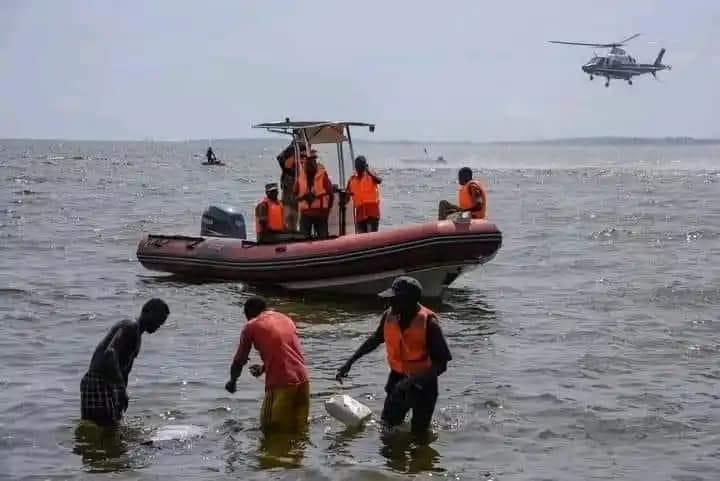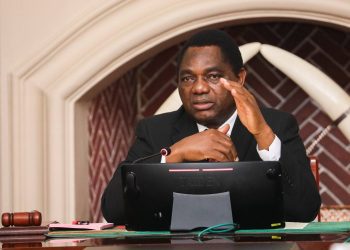KAMAYOYO Kelvin, Zambian Economist, Scholar and BuyZed Campaign Chief Technical Advisor, noted that it was high time for African Union (AU), AfDB, PTA Bank and AFREXIMBANK to consider helping Member States on the African continent to bid for hosting Men’s FIFA World Cup, Olympic Games and World Expos in order to maximize the full benefits of multilateral trade integration, bring the World to Africa and accelerate efforts towards attaining Sustainable Development Goals (SDGs). The AU and its partners should consider prioritizing the hosting of any of these 3 global events on the African soil because they indisputably help in bolstering the host country’s global presence, underprops its economic diversification agenda and spurs key sectors for a better shared future, and ultimately contributes to poverty alleviation efforts. It is now vivid on the African continent that the concept of Expos or Fairs is considered to be valuable and as such has become prominent, thus, at regional and national levels going by the experiences of Trade Fairs, Expos and weekly outdoor Exhibitions.
Undeniably, once a country hosts any of these 3 global events (Men’s FIFA World Cup, Olympic Games and World Expos) it leaves an indelible socio-economic transformation and development footprint in that country. Apparently, among the 3 global events, Africa has only hosted the World Cup in 2010 in South Africa and is yet to host either the World Expo or the Olympic Games. Notwithstanding this unfortunate or undesirable situation Africa finds itself, the 3 global events are magnificent and important to host because they are once-in-a-generation opportunity to share ideas, culture, cooperation and innovations. Generally, Expos or Fairs provide an opportunity to celebrate major historic events, showcasing achievements and finding solutions to the challenges affecting the World.
The World Expos play a significant role in stimulating trade and investment thereby transforming the localities in which they are held and contribute to reducing income inequalities as they efficiently present economic opportunities close to even the most disadvantaged or marginalized populations. Suffice to note that, most cities or towns globally have become famous and are among the most preferred tourist attractions after having hosted the World Expo or World’s Fair because the event helps to boost the host country’s public image and national prestige. On a more practical level, hosting an Expo often brings huge economic benefits, especially in creating job opportunities and boosting the services sectors such as the tourism, infrastructure development and construction, and advertising or marketing. Additionally, each Expo is designed in such a way that there is a dedicated ‘‘Theme’’ which identifies the global challenge to be addressed, and acts as a foundation for what exhibitors will showcase and what intellectual and cultural events will be demonstrated to the world.
In simple terms, World Expos are global networking platforms or events designed to showcase the achievements, influencing policy, expose trade and investment opportunities, showcase innovations and prevailing culture of nations. In fact, an Expo has synonymous events which could include trade fairs, shows and exhibitions -Worldwide Expos are aged over 150 years. There are different types of Expos globally which are often held in different forms, size and durations.
According to the Bureau International des Expositions, ‘‘Expos are global events dedicated to finding solutions to fundamental challenges facing humanity by offering a journey inside a chosen theme through engaging and immersive activities. Organised and facilitated by governments and bringing together countries and international organisations (Official Participants), these major public events are unrivalled in their ability to gather millions of visitors, create new dynamics and catalyse change in their host cities.’’
The World Expos are regulated by the Bureau International des Expositions (BIE) which is an intergovernmental organization established in 1931. According to the Bureau International des Expositions, there are 4 types of Expos which the BIE regulates and organized under its ambit namely; World Expos, Specialized Expos, Horticultural Expos, and the Triennale di Milano. The BIE has outlined that ‘‘each event in its own field aims at educating the public, sharing innovation, promoting progress and allowing dialogue and shared experiences’’.
The first World Expo dubbed the Great Exhibition took place in 1851 in London and since then the concept has become popular and is being repeated across the globe every after 5 years to showcase innovation, promote trade and investment including finding solutions to challenges affecting the world at large. In 1928 the Bureau international des expositions (BIE; English: International Bureau of Expositions) was established as an intergovernmental organization to supervise international exhibitions (also known as Expos or World Expos) falling under the jurisdiction of the Convention Relating to International Exhibitions and since then different protocols have governed Expo categories. The Expos are categorized into World Expos and Specialized Expos which are defined according to the frequency, the duration, the size and the construction attributes of each Expo event.
Particularly, the World Expo happens every 5 years for a period of 6 months in a designated city or town of the host country. The following are some of the notable and recent World Expos according to the year it was held and its respective guiding theme just for purposes of highlighting:
• 1851- The first World Expo was held in London, United Kingdom: “The Great Exhibition- Industry of All Nations’’
• 1855- Paris, France: “Agriculture, Industry and Arts”
• 1862- London, United Kingdom: “Industry and Arts’’
• 1873- Austria, Hungary: “Culture and Education’’
• 1876- Philadelphia, United States: “Arts, Manufactures and Products of the Soil and Mine’’
• 1888- Barcelona, Spain: ‘‘Fine and Industrial Art’’
• 1897- Brussels, Belgium: “Modern Life”
• 1900- Paris, France: “19th Century: an overview”
• 1904- Louisiana, United States: “Louisiana Purchase”
• 1933- Chicago, United States: “The interdependence among Industry and scientific research”
• 1949- Port-au-Prince, Haiti: “The festival of Peace’’
• 1958- Brussels, Belgium: “A World View: A New Humanism’’
• 1967- Montreal, Canada: “Man and His World’’
• 2000- Hannover, Germany: “Man, Nature and Technology”
• 2005-Aichi, Japan: “Nature’s Wisdom”
• 2010- Shanghai, China: “Better City, Better Life”
• 2015- Milan, Italy: “Come let us make food” from theme “Feeding the planet, Energy for life”
• 2021- Expo 2020 Dubai, UAE: “Connecting Minds, Creating the Future “
• 2025- Osaka, Japan: “Designing Future Society for Our Lives” is the next World Expo.
Based on the Themes of the aforesaid World Expos, it is apparent that the Expo largely focuses at humans, economy, culture and environment and continue to foster the transition from simple commodity exchange to the exchange of new production technologies and new life concepts for sustainable development and strive for a peaceful World. It is for this reason that countries globally regard the World Expo as an important platform that enables them to look beyond technology and begin to pay more attention to human, environment and cultural conditions. The World Expo enables countries to also display industrial advancements and promotes the exchange of technology, trade, and culture. However, todate no African country has hosted the World Expo since 1851 and yet countries like Belgium, Italy, Australia, France, Japan, Spain and United States have hosted the global event at least 3 times.
Apparently, each World Expo comes with its own historical context, for instance in 1942, the Italian capital Rome had to cancel its scheduled exposition due to the Second World War and in 1955, Brussels postponed its official opening by three years as a result of the Korean War and the prevailing international tensions. More recently the Expo 2020 Dubai was not an exception as it had to be postponed due to the unprecedented Covid-19 pandemic. The pandemic-delayed Expo 2020 that only came to open on 21st October, 2021 in Dubai, United Arab Emirates under the theme: “Connecting Minds, Creating the Future”, aimed at fostering creativity, innovation and collaboration between nations, cultures and institutions.
In conclusion, it is now even more persuading for the World to give a rare chance in 2035 to the African continent so that it could host the first ever World Expo under the theme: ‘‘A New World with Africa on the Rise through Innovation and Global Partnerships’’ and this is achievable and would help transform the livelihoods of the local communities. Africa has been providing markets for manufactured goods to the other continents despite having abundant natural resources or raw materials for the production of those goods but this is rapidly changing and Africa will soon be a continent with prosperous manufacturing hubs and increased appetite for consumption of technology. The continent has yet again missed on the opportunity to submit a bid to the BIE to host the subsequent 2030 World Expo which has since attracted four countries competing to organise the World Expo 2030, namely, the Republic of Korea (Busan), Italy (Rome), Ukraine (Odesa) and Saudi Arabia (Riyadh). Hence, Africa is yet again going to participate as an exhibitor or delegate to the 2030 World Expo since it’s not the host.
In the next Article which is Part (III) will focus on the third major global event namely the Olympic Games and address it in this similar fashion before proceeding to Part (IV) marking the conclusion of this educative series of Articles centred around the three global magnificent events that can propel economic growth and sustainable development for the African continent. Look out for Part (III): Why has Africa remained the only continent that has never hosted the Olympic Games? The Article will endeavour to describe the two types of Olympic Games, thus, the Winter Olympics and the Summer Olympics, and thereafter identify the type of sports that takes place there and which countries participate in those games.





































